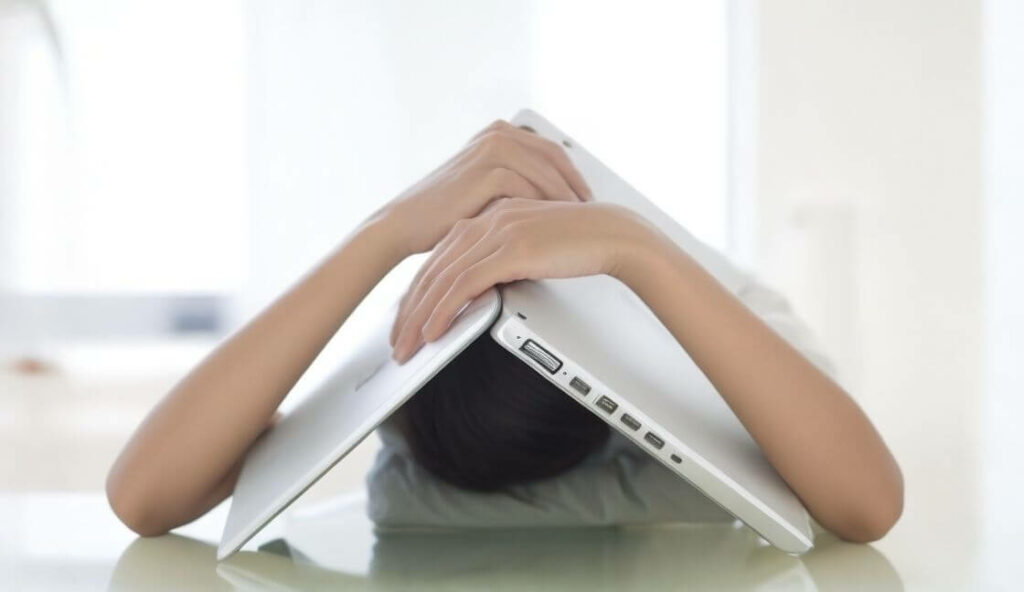Why is social media bad? Does it bring about adverse mental health outcomes? These are some of the burning questions medical experts and users seek answers to.
At the Time 100 summit in 2019, Tim Cook, the CEO of Apple, said something fascinating: you are doing the wrong thing if you are looking at a phone more than you are looking at someone’s eyes. What does this statement mean in a digital age like ours?
The simple observation from one of the world’s top CEOs in the tech industry highlights the undeniable – our continuous detachment from genuine human connection. Interestingly, social media, the tool designed to connect us from the onset, has ironically begun to do the exact opposite.
Who doesn’t want likes, shares, and comments on their post? This instant validation has led over 60% of global social media users to prioritize screen time over face-to-face interaction.
This article will shed light on the negative effects of social media and the healthy ways to use this incredible tool. Let’s jump right in!
How Does Using SM Affect Us?

We can no longer underestimate the effect of SM on our emotions and health behavior. Therefore, asking the right question is crucial when dealing with the negative effects of social media on mental health.
Positive Effects of Social Media on Mental Health
Before we jump on the bad news, let’s look at the brighter side of things. So, why is social media good?
For many, social media serves as a lifeline for social connection. It comes in handy in situations where physical or geographical barriers exist. Users can stay abreast with current events or form new social connections at the tap of a button.
This has undoubtedly enriched many lives. Furthermore, cross-sectional studies have shown that for some, social media can foster feelings of belonging and provide support during tough times. For instance, during the COVID-19 pandemic, social media became the primary means of getting in touch with loved ones as movements were strictly frowned upon.
What’s more, social media offers a platform for mental health professionals to share valuable insights, allowing users to become more informed and proactive about their emotional health. For instance, teenage girls battling body image concerns might find solace in online communities that promote body positivity and self-love.
Negative Effects of Social Media on Mental Health
On the flip side, we also must answer the question, why is social media bad? Here are some answers:
Feelings of Missing Out
Let’s begin this list with the Fear of Missing Out (FOMO). It is one of the most pervasive emotions triggered by social media. We see this happen when a user scrolls through their feeds and see peers enjoying events, vacations, or related experiences.
This individual can start feeling inadequate. Unfortunately, this constant exposure to others’ highlights, often exaggerated, can lead to diminished subjective well-being.
The social media user starts feeling left out, leading to anxiety and depression. Why? They’ve compared their daily life to the seemingly perfect lives of others online.
Filters Can be Deceiving
Next on the list of negative effects of social media are filters. Their advent and image-editing tools can be said to be good just as it is… not so good. Truly, they add a fun element to our posts but also set unrealistic standards of beauty and success.
This hasn’t helped the emotional health of adolescents in particular. The edited portrayals can lead to body image concerns and feelings of depression. Unfortunately, the line between real life and a filtered reality becomes blurred over time.
As a result, it impacts users’ perceptions of themselves and their self-worth. This skewed vision can have adverse effects, not only on mental but also on physical health, as users might engage in harmful health behaviors to achieve what they perceive as the “ideal.”
Focusing on Interactions
Experimental studies reveal something fascinating: symptoms of depression and anxiety disorder with higher frequency among heavy SM users. Experts say the decrease in real-life social interactions leads to loneliness and isolation. Their studies suggest symptoms result from the shifts from the quality of social connections to the quantity measured in likes, shares, and comments.
Social Media Can be Addictive
We cannot round up the negative effects of social media without highlighting its addictive, risky behaviors. Remember, these platforms are designed to get you hooked. In other words, they feed into the human psyche’s reward system.
The dopamine-driven feedback loops created by notifications, likes, and messages can make these platforms almost addictive. If you are an active user, you’ll find that you habitually check your account, even without realizing it.
This borderline addictive behavior can distract from actual responsibilities such as work and quality family time. Mental health experts often encounter instances where the boundary between daily life and digital life is perilously thin, underscoring the need for awareness and balance.
How Can Social Media Platforms Change?

Reputable organizations have called for change, given the increasing awareness of the negative impact of social media on mental health. Their position is that if social media platforms are to remain sustainable and beneficial to users in the long run, several modifications are imperative.
Here’s how these platforms can evolve:
- Promote Genuine Connections: Platforms can alter their algorithms — a set of data and rules that decides what a user sees on the platform — to prioritize content from close friends and family. This could result in meaningful interactions instead of passive content consumption.
- Limit Toxicity: Stakeholders could introduce better tools for detecting and moderating harmful content. This includes using AI and machine learning to identify and flag inappropriate content or behaviors, along with easier ways for users to report troubling content or bullying.
- Transparent Algorithms: By offering users a clearer understanding of how their feeds are curated, platforms can mitigate feelings of inadequacy or bias. This transparency can also help users make more informed choices about their online interactions.
- Reduce the Emphasis on Vanity Metrics: Instead of focusing on the number of likes, shares, or followers – which can exacerbate social comparison – platforms can either hide these metrics or introduce new metrics that promote positive interactions and meaningful content.
- Encourage Real-world Activities: Social media can integrate features that promote real-world social interaction, such as events, meetups, or activities based on users’ interests, pushing them to engage offline.
- Address Filter Reality: To combat the negative effects of unrealistic beauty standards, platforms can be more transparent about filters or even provide educational content about the dangers of unrealistic body image expectations.
- Support Research: By collaborating with researchers and mental health professionals, platforms can ensure they’re making evidence-based changes and staying informed about the latest findings on social media’s impact on mental health.
- Create Safe Spaces: Dedicated spaces for users going through challenges or mental health issues, where they can share and find support, can be beneficial. Ensuring these spaces are moderated and supportive can provide valuable resources for those in need.
Tips for Healthy Use of Social Media
Social media can be both refreshing and challenging. The impact on mental well-being is undeniable. Hence, adopting practices that prioritize emotional health becomes crucial.
Here are some tips to help deal with the negative effects of social media:
- Limit Screen Time: Start by setting daily/weekly limits and take regular breaks to engage in practical socialization.
- Quality Over Quantity: You’d want to spend your time building genuine social connections rather than amassing followers or friends.
- Engage in Real Conversations: While social media offers a platform for interaction, prioritize face-to-face conversations to foster genuine social connections, just as Tim Cook advised.
- Beware of the Comparison Trap: Social comparison can result in body image issues. Remember, what you see online is often a curated highlight reel, not an entire life story.
- Seek Professional Help When Needed: If you recognize signs of deteriorating emotional health or feelings of anxiety linked to social media usage, it’s vital to consult with mental health professionals.
Conclusion
There you have it, folks: a balanced expose on the impacts of social media on mental health. We’ve discussed the good and the ugly and answered the question: why is social media bad for teens? While SM can be a great tool for connecting with others, for business or personal purposes, it’s important to note that it can be addictive. By following the tips outlined in this article and focusing on the ethical use of social media, we can all reap the benefits of these tools while mitigating the risks. Good luck!
- YouTube Shorts Growth: How to Use Shorts to Boost Your Channel - July 12, 2024
- Best YouTube Video Ideas to Get Subscribers - June 20, 2024
- A Guide to Effective YouTube Growth Strategies That Work - June 20, 2024

